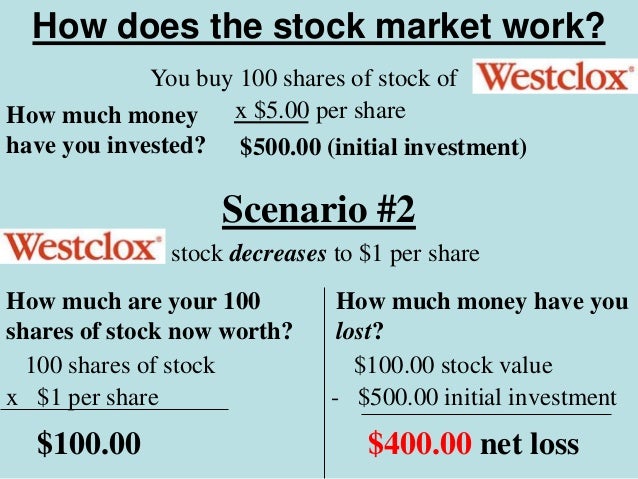If the idea of investing in the stock market scares you, you are not alone. People with very restricted experience in stock investing are either frightened by horror stories of the average financier losing 50% of their portfolio valuefor example, How Does Investing Work in the two bear markets that have actually already taken place in this millennium or are seduced by "hot suggestions" that bear the guarantee of big benefits but hardly ever settle.
The truth is that investing in the stock market brings threat, but when approached in a disciplined way, it is among the most effective methods to develop one's net worth. While the value of one's house usually represents many of the net worth of the typical specific, the majority of the affluent and very abundant typically have most of their wealth bought stocks.
Key Takeaways Stocks, or shares of a business, represent ownership equity in the company, which give shareholders voting rights in addition to a residual claim on business earnings in the type of capital gains and dividends. Stock markets are where individual and institutional financiers come together to buy and sell shares in a public location.
A private or entity that owns 100,000 shares of a company with one million exceptional shares would have a 10% ownership stake in it. A lot of companies have outstanding shares that run into the millions or billions. Typical and Preferred Stock While there are 2 primary types of stocktypical and chosenthe term "equities" is associated with typical shares, as their combined market worth and trading volumes are numerous magnitudes larger than that of preferred shares.
Preferred shares are so called due to the fact that they have preference over the typical shares in a company to receive dividends along with properties in the occasion of a liquidation. Common stock can be further categorized in terms of their ballot rights. While the basic premise of common shares is that they must have equal ballot rightsone vote per share heldsome companies have dual or numerous classes of stock with various ballot rights connected to each class.
